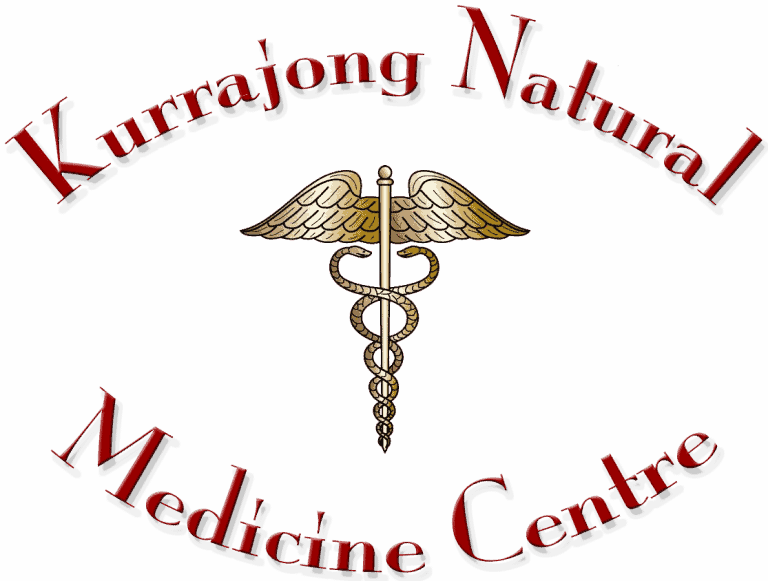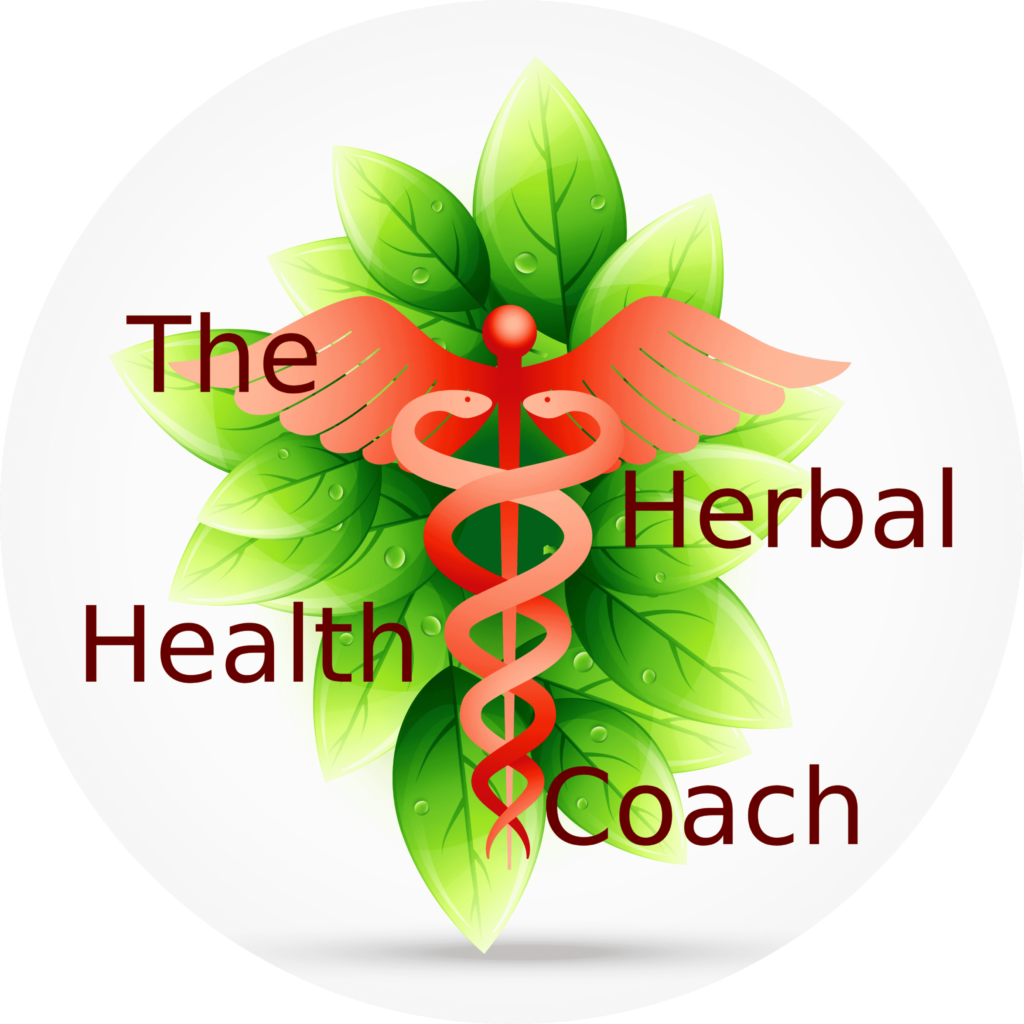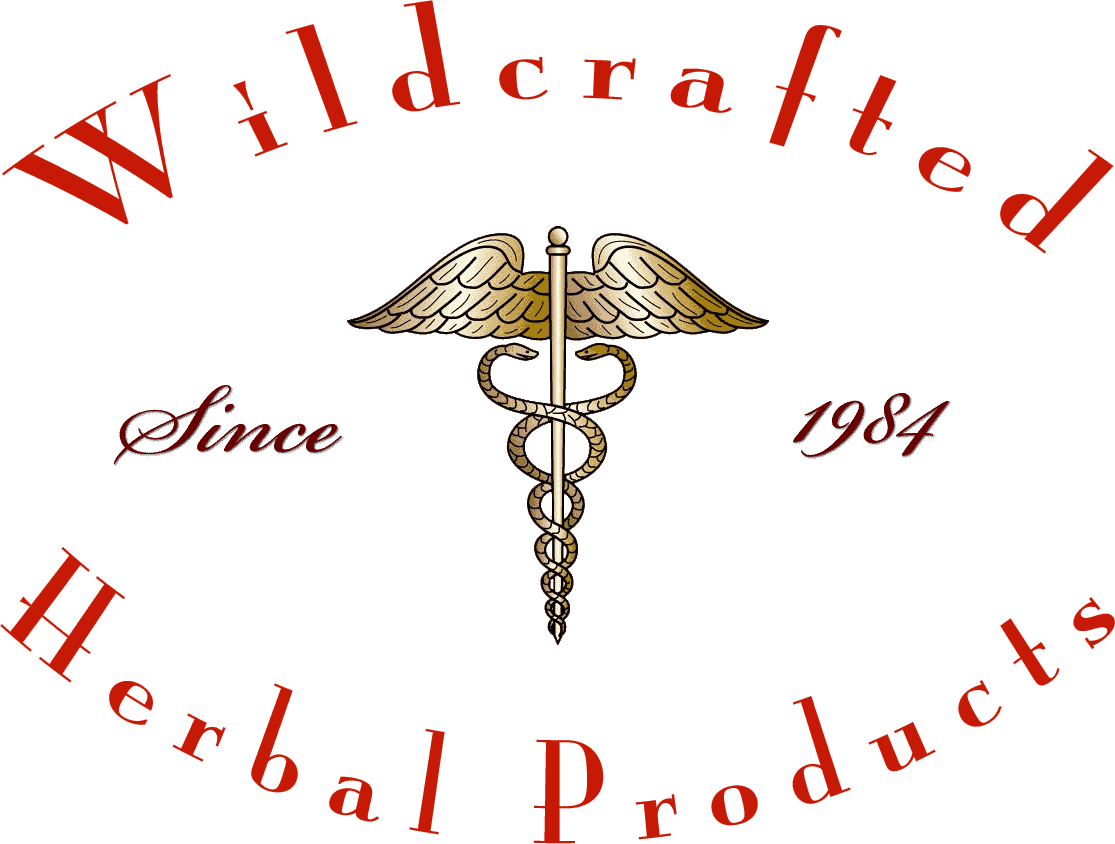The Health & Wellness Magazine - Summer 2025/6 Issue
Content of The Health & Wellness Magazine - Summer 2025/6
What's On & News
Christmas
⇒ Susan and I wish all of you a very Merry Christmas filled with friends, family and lots of joy.
⇒ We will be having a break from the 22nd of December to the 7th of January 2026. Please make sure you talk to us if you require additional medications during the holiday period.
=> If you need any herbs or creams , make sure you order them BEFORE THE 20th of December
Acupuncture for Cancer Care: Where Science Meets Compassion
Introduction
Acupuncture for cancer care is gaining recognition as a safe, evidence-based therapy that supports people through chemotherapy, radiation, surgery, and post-cancer recovery. While modern oncology focuses on eradicating disease, acupuncture addresses the person behind the diagnosis — easing pain, calming anxiety, reducing fatigue, and restoring balance to body and mind.
In this new era of integrative medicine, this represents the meeting point between ancient wisdom and modern science — where healing is guided by both compassion and evidence.
Understanding Acupuncture’s Role in Oncology

How Acupuncture Supports Patients During Chemotherapy
1. Reducing Nausea and Vomiting
One of the most well-documented benefits of acupuncture for cancer care is its ability to reduce chemotherapy-induced nausea and vomiting (CINV). Studies from institutions like Memorial Sloan Kettering Cancer Center show that acupuncture activates serotonin and dopamine pathways that control nausea.
Patients who receive acupuncture alongside standard anti-nausea medication often experience less vomiting, better appetite, and improved hydration. The acupoint Pericardium 6 (Neiguan), located on the inner aspect of the forearm, is especially effective and is also used in acupressure bands for at-home relief.
2. Easing Fatigue
Fatigue is one of the most common and persistent side effects of chemotherapy. Acupuncture has been shown to regulate stress hormones, improve sleep quality, and reduce inflammatory cytokines — all of which contribute to better energy levels.
In Traditional Chinese Medicine (TCM), chemotherapy is said to drain Qi and Blood, leading to exhaustion and weakness. Acupuncture combined with Chinese herbal medicine can restore this balance, helping patients regain vitality and mental clarity. This makes acupuncture for cancer care a cornerstone of support.
3. Managing Neuropathy
Chemotherapy-induced peripheral neuropathy (CIPN) can cause tingling, numbness, and pain in the hands and feet. New studies demonstrate that acupuncture promotes nerve repair by increasing local blood flow and stimulating nerve growth factors.
Patients often report improved sensation, less pain, and a better ability to walk or grip objects — greatly enhancing their quality of life.
Acupuncture During Radiation Therapy
Radiation therapy can cause fatigue, radiation burns to the skin, and emotional stress. Acupuncture helps by supporting the body’s natural resilience and restoring balance.
Reducing Radiation-Induced Fatigue: Acupuncture supports energy metabolism and regulates the body’s stress response, improving recovery and vitality.
Calming Anxiety and Improving Sleep: Points like Yintang (between the brows) and Heart 7 (Shenmen) calm the nervous system, reduce anxiety, and improve sleep.
Supporting Skin Health: By enhancing circulation and modulating inflammation, acupuncture can reduce the severity of radiation burns.
From a TCM perspective, radiation creates “Heat toxin” that damages Yin and Qi. Acupuncture helps to cool, nourish, and restore balance — making it an ideal adjunct to radiation treatments.
Pain Management Through Acupuncture
Pain — whether from surgery, inflammation, or cancer progression — can profoundly affect wellbeing. Numerous studies confirm that the use of acupuncture for cancer care is a highly effective treatment to help in relieving pain.
It works by:
Releasing endorphins, which are the body’s natural painkillers
Modulating serotonin and dopamine levels (the ‘Happy hormone’)
Reducing inflammation and muscle tension
Enhancing relaxation and improving sleep
Major hospitals now include acupuncture as part of integrative pain management programs. For patients, this often means fewer medications, reduced side effects, and a stronger sense of control over their healing journey.
The Emotional and Psychological Benefits
Beyond the physical symptoms, cancer can take an enormous emotional toll. Anxiety, depression, and fear are common during and after treatment. Acupuncture provides a safe, nurturing space where patients can reconnect with their bodies and experience deep relaxation.
Physiologically, acupuncture stimulates the parasympathetic nervous system — the body’s “rest and digest” mode — helping reduce stress hormones and promote calm. From a Chinese medicine viewpoint, emotional distress creates and reflects stagnation of Liver Qi or imbalance of the Heart system. By restoring the flow of Qi, acupuncture helps regulate mood and build emotional resilience.
For many, this is where acupuncture for cancer care becomes more than symptom relief — it becomes a form of emotional healing.
Supporting Recovery After Cancer Treatment
Once treatment ends, many survivors struggle with fatigue, neuropathy, insomnia, or hormonal imbalance. Acupuncture provides a bridge from active treatment to true recovery, supporting both physical and emotional renewal.
Post-Cancer Benefits Include:
Rebuilding strength and energy after prolonged stress
Supporting immune system recovery and detoxification
Regulating hormones disrupted by chemotherapy or surgery
Improving sleep and mood
Restoring a sense of normalcy and connection
Each survivor’s journey is unique. Acupuncture allows for individualised care — whether the goal is to relieve lingering neuropathy, restore energy, or simply feel whole again.
Scientific Evidence for Acupuncture in Cancer Care
Over the past two decades, the evidence supporting acupuncture for cancer care has grown significantly.
Recent highlights include:
Nausea and Vomiting: Cochrane reviews confirm acupuncture as a safe, effective adjunct to anti-emetic drugs.
Pain Relief: Studies in JAMA and Integrative Cancer Therapies show acupuncture significantly reduces pain intensity and medication use.
Fatigue: Research in Annals of Oncology reports meaningful improvements in cancer-related fatigue and sleep quality.
Anxiety and Depression: Randomised controlled trials demonstrate improved mood and emotional stability.
Quality of Life: Across multiple studies, acupuncture patients report better overall wellbeing and resilience.
Many leading cancer centres — including MD Anderson, Memorial Sloan Kettering, and Cancer Council–affiliated programs in Australia — now offer acupuncture as part of comprehensive oncology support.
Safety and Clinical Integration
Acupuncture is extremely safe when performed by qualified practitioners experienced in oncology care.
Professional oncology acupuncturists adjust techniques to accommodate:
Low white blood cell counts
Lymphedema risk post-surgery
Bleeding risk from medication
Fatigue or frailty during treatment
Integration is key. Collaboration between oncologists and acupuncturists ensures treatments complement — not conflict with — conventional care. When delivered as part of a holistic team, acupuncture enhances both safety and therapeutic outcomes.
Compassion as Medicine
One of the most healing aspects of acupuncture lies in its human connection. Each session is unhurried, attentive, and deeply personal. Patients feel heard, supported, and respected — an experience that can be rare in the fast pace of hospital-based medicine.
This compassionate interaction itself has therapeutic value. It reduces fear, restores confidence, and helps patients reconnect with hope. In the truest sense, acupuncture for cancer care embodies the meeting of science and compassion — precision guided by empathy.
A Holistic Model for the Future
Integrative oncology is reshaping how we think about healing. It recognises that curing disease and restoring health are not always the same thing. Acupuncture’s strength lies in addressing the whole person — body, mind, and spirit — to improve quality of life during and after cancer treatment.
As modern medicine advances, the most powerful innovations may come not only from new drugs or machines, but from rediscovering the timeless principles of balance, connection, and compassionate care.
Conclusion
Acupuncture for cancer care is no longer fringe medicine. It’s a respected, research-supported therapy that empowers patients through every phase of treatment and recovery. Whether easing chemotherapy side effects, calming the mind, or rebuilding strength after remission, acupuncture offers a safe, gentle, and profoundly human approach to healing.
In a world where cancer care can feel clinical and overwhelming, acupuncture reminds us that healing is not just about fighting disease — it’s about restoring harmony, peace, and the natural capacity to thrive.
Discover the Benefits of Acupuncture for Cancer Care
At Kurrajong Natural Medicine Centre, we offer compassionate, evidence-based acupuncture to support you through every stage of cancer care and recovery.
Book your consultation today and experience how acupuncture can help restore balance, resilience, and vitality, call (02) 45730784
Wrinkles and Liver Spots are Signs of Aging Mature skin
by Susan & Danny Siegenthaler
Introduction
The natural aging process produces visible effects on our skin. Increased dryness, wrinkles, liver spots and other growths begin to appear, and cuts and bruises heal more slowly. These are some of the signs that indicate chronological aging is taking place.
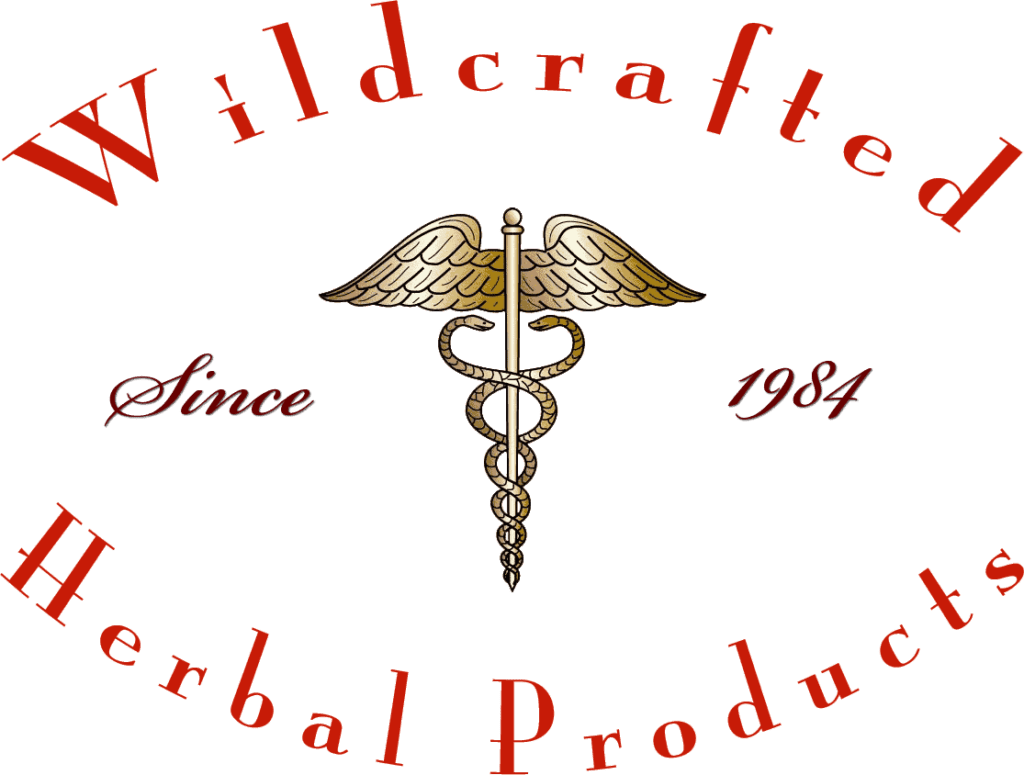
Wrinkles
Gravity is the skin’s worst enemy. Weakening of collagen and elastin fibres causes reduced firmness of the skin, gravity pulls at the skin and causes it to sag, this in combination with a reduction in the fatty padding of the skin inevitably causes wrinkling of the skin tissue.
Can Wrinkles Be Avoided?
- Wear Sunscreen,
- Always wear a hat with a wide brim when going outside – remember, just because there’s clouds does not mean there’s no UV,
- Don’t sunbathe, and
- Where possible, stay out of the sun between 10am to 3pm.
As we progress through our 30’s, 40’s, 50’s and beyond, our skin requires an appropriate skin care regime to maintain, as well as repair, the skin. The older you are when you start to protect and care for your skin, the less effective it will be, however, it is never too late to start.
Treatments for Aging Skin
‘Liver spots’ or ‘age spots’
Here Are Some Of Our Most Popular Products
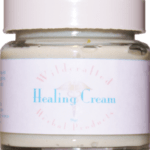
Wildcrafted's Healing Cream
Treats minor skin injuries, cuts and bruises
Read more...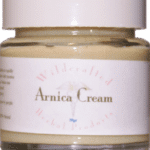
Wildcrafted's Arnica Cream
Helps to rapidly clear bruising and swelling
Read more...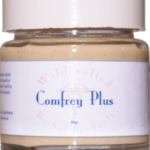
Wildcrafted's Comfrey Plus Cream
Treats traumatic injury to nerves, joints, bone, muscles and more
Read more...Astragalus: A Deep Dive - Science, Tradition, Uses, and Saftey
Astragalus (most commonly Astragalus membranaceus, called Huangqi in Chinese) is one of the best-known herbs in Traditional Chinese Medicine (TCM). It’s used as a “qi tonic” — historically to strengthen the body’s defensive energy (wei qi), boost vitality, and support recovery after illness. Over the last two decades modern science has tested many of those uses: researchers have isolated polysaccharides, saponins and flavonoids that exert measurable biological effects, run randomised trials in humans, and examined Astragalus as an adjunct in oncology, immunomodulation, and fatigue. Below I summarise what the scientific literature currently supports, what remains anecdote or tradition, and the safety considerations every practitioner and patient should know. (BioMed Central)
1. What Plant(s) Are We Talking About?
When people say “astragalus” in herbal medicine they usually mean the dried root (radix) of Astragalus membranaceus or its close varieties (e.g., A. membranaceus var. mongholicus). The dried root — Astragali radix or Huangqi — is standardised in the Chinese Pharmacopoeia and is the pharmacological source for most research and commercial extracts. Note: many different Astragalus species exist worldwide; only some are used medicinally and a few (in other genera) contain toxic alkaloids — so species identification matters. (BioMed Central)
2. Key chemical constituents and how they might act
Modern phytochemistry identifies three major groups of active constituents in medicinal Astragalus:
- Astragalus polysaccharides (APS / PG2 in some clinical work): large carbohydrate molecules thought to underlie many immunomodulatory effects.
- Triterpenoid saponins (astragalosides) — implicated in anti-inflammatory, antioxidant, and potential cardioprotective actions.
- Flavonoids and other small phenolics — antioxidant and signalling roles.
These classes work through multiple pathways: modulation of innate and adaptive immune responses, antioxidant signalling, anti-inflammatory cytokine balance, effects on mitochondrial function and cellular stress pathways, and—preclinically—anti-tumour mechanisms. Contemporary reviews map these compounds to specific mechanisms (e.g., APS stimulating macrophages and dendritic cells; astragalosides affecting NF-κB and antioxidant enzymes). (PubMed Central)
3. What the lab and animal studies show (preclinical evidence)
Preclinical work is extensive and consistent in several directions:
- Immunomodulation: APS enhances innate immune cell activity, boosts antibody responses in some models, and can reverse experimentally induced immunosuppression.
- Anti-inflammatory and antioxidant effects: astragalosides and flavonoids reduce markers of oxidative stress and inflammatory signalling in cell and animal models.
- Anti-tumour actions in vitro/in vivo: many studies report Astragalus components inhibit cancer cell proliferation, induce apoptosis, or enhance the efficacy of chemotherapy drugs in animal models.
- Cardio- and hepatoprotective findings: protective effects against ischemic injury and against some toxin-induced liver injuries are described in animals.
Preclinical data are mechanistically rich but can’t by themselves prove clinical benefit for complex human diseases; they are best viewed as strong signals that justify clinical trials. (Frontiers)
4. Clinical evidence: what human trials and reviews say
Immunomodulation in healthy and stressed people:
Small randomised trials suggest standardised Astragalus extracts (or APS preparations) can blunt transient immunosuppression, for example following strenuous exercise, and may restore some immune parameters. A randomised controlled trial in athletes found a standardised extract attenuated exercise-induced immune suppression. (BioMed Central)
Cancer supportive care / adjunct to chemotherapy:
Multiple randomised trials and systematic reviews/meta-analyses report that Astragalus, often given as an injection or as part of traditional formulas alongside chemotherapy, can improve tumour response rates, reduce some chemotherapy side effects, and improve immune indices. A 2019 meta-analysis of Astragalus-containing formulas suggested improved response and reduced toxicity when combined with chemotherapy, though the quality of many trials varies and most were small and heterogeneous. More recent systematic reviews continue to investigate Astragalus polysaccharide injections combined with standard therapy in specific cancers (e.g., cervical cancer), with some positive pooled results but the usual cautions about study heterogeneity and publication bias. A phase-2 randomised, placebo-controlled study has examined an APS (PG2) formulation for chemotherapy-related fatigue with encouraging signals for reduced fatigue and tolerance. (PubMed Central)
Other clinical areas (preliminary evidence):
- Fatigue and quality of life: small trials and patient-reported outcomes suggest Astragalus extracts can help cancer-related fatigue and improve quality-of-life metrics in some settings. (Nature)
- Metabolic, cardiovascular and hepatic disease: clinical evidence is preliminary; small studies suggest possible benefits on blood lipids, glycaemic markers, or liver enzymes, but results are inconsistent and require replication. (MDPI)
Bottom line on clinical evidence: There are promising and consistent signals — especially for supportive oncology use and immunomodulation. High-quality, multicentre RCTs with standardised extracts and clinically meaningful endpoints are still needed. (PubMed Central)
5. Traditional and Anecdotal uses that still guide practice
In TCM, Huangqi (Astragali radix) is classically used to:
- Tonify qi and strengthen the “wei qi” (defensive qi) — used for recurrent colds, fatigue, poor appetite.
- Promote wound healing and diuresis; combine with other herbs for different syndromes (e.g., astragalus + angelica for blood/qi).
- Support recovery after prolonged illness, surgery, or heavy blood loss.
Anecdotally many patients report improved energy, fewer infections, and faster recovery when using astragalus-containing formulas. These reports align with immunomodulatory and adaptogenic ideas, but clinician judgment is needed to match traditional patterns with modern diagnoses. (PubMed Central)
6. Safety, Interactions, and important Cautions
Astragalus is generally very well tolerated; mild gastrointestinal symptoms or allergy are the most commonly reported adverse events. However, several important safety issues must be considered:
Always consult a healthcare professional, for example a Chinese medicine practitioner or medical herbalist before taking any herbal supplement, especially if you are pregnant or breastfeeding.
- Autoimmune disease and immunosuppression: because astragalus can stimulate immune activity, it may worsen autoimmune conditions (e.g., rheumatoid arthritis, lupus) or interfere with immunosuppressive drugs (e.g., post-transplant medications). Patients on immunosuppressants or with autoimmune disease should avoid it unless supervised by their specialist. (NCCIH)
- Cancer / chemotherapy: while many trials report benefits when astragalus is used as an adjunct, there is theoretical concern about any immunostimulant interfering with immune-modulating cancer therapies (e.g., checkpoint inhibitors) — discuss with oncology teams. Also, quality control matters: injections or high-potency concentrates used in Chinese hospitals are not equivalent to supermarket capsules. (PubMed Central)
- Blood sugar and blood pressure: astragalus may lower blood glucose and blood pressure in some people — monitor if you have diabetes or are on antihypertensive or antidiabetic drugs. (Healthline)
- Interactions & quality control: herbal-drug interactions are possible; quality varies across brands and regions. In clinical trials, investigators often use standardised extracts (APS, astragaloside-standardized preparations) or injections — those are not the same as an unstandardised tea or capsule. (BioMed Central)
7. Preparations and Dosing — Practical notes
Research has used many preparations: whole-root decoctions (traditional), standardized extracts, concentrated oral formulations, and intravenous polysaccharide injections used in China. Doses vary widely depending on the form:
- Traditional decoction / tea: typical TCM formulas use several grams of dried root (usually combined with other herbs).
Because dosing and composition are very important consult a suitably qualified healthcare professional, experienced with herbal medicine, before taking any herbal preparation. (BioMed Central)
8. Research Gaps and Future Directions
Major needs in the evidence base include:
- Large, high-quality RCTs with standardized, well-characterized extracts and clinically relevant endpoints (not just immune biomarkers).
- Longer-term safety data, especially in pregnancy, autoimmune disease, and with novel cancer immunotherapies.
- Standardisation and quality control across commercial products so clinical findings can translate to real-world use.
9. How Clinicians and Patients Might Reasonably use Astragalus today
- As supportive therapy for recovery and mild immune support: reasonable for short-term use in otherwise healthy adults seeking traditional tonics, provided they are not pregnant, not autoimmune, and not on immunosuppressants.
- In oncology supportive care: some centres use APS/astragalus-based formulations under medical supervision to reduce chemotherapy toxicity or fatigue — this should always be coordinated with the oncology team. Evidence suggests potential benefits but is not yet definitive for survival endpoints. (PubMed Central)
- Avoid unsupervised use in pregnancy, breastfeeding, autoimmune disease, recent transplant, or when taking immune-suppressing drugs.
10. Quick references (selected)
- Modern review of Astragali radix (Huangqi) in Chinese medicine and pharmacology. (BioMed Central)
- Meta-analysis and systematic reviews of Astragalus-containing formulas in supportive cancer care. (PubMed Central)
- Phase-2 randomized placebo-controlled study of PG2 (APS) for chemotherapy-induced fatigue. (Nature)
- JISSN randomized trial of standardized astragalus for exercise-induced immunosuppression. (BioMed Central)
- NCCIH / NIH consumer guidance and safety notes on Astragalus. (NCCIH)
Conclusion
Astragalus is a classical tonic with a growing scientific footprint. Biologically active polysaccharides, saponins and flavonoids explain many of the herb’s immunomodulatory, antioxidant and supportive effects seen in the lab and in some human studies.
Clinical data are promising — particularly for immune support, supportive oncology care and reduction of fatigue — but variability in product type, dose and study quality means that careful clinical judgment and coordination with conventional care are essential. Safety questions remain for pregnancy and for people on immunosuppressive therapy or with autoimmune disease. For patients and practitioners interested in using Astragalus, prioritise high-quality, standardised products and open communication between herbalists and medical teams.
Heal Your Gut, Heal Your Mind: A Naturopathic Approach to the Gut-Brain Axis
The ancient maxim “All disease begins in the gut” is experiencing a profound scientific renaissance. What was once dismissed as folk wisdom is now the cutting-edge of modern neuroscience, revealing an intricate, bidirectional highway between the digestive tract and the central nervous system: the Gut-Brain Axis (GBA). For centuries, naturopathic and traditional medicine systems have focused on holistic digestive wellness as the foundation of total health, and contemporary research is providing the undeniable mechanisms. This article explores the powerful triad of gut health, immunity, and mental wellness, and how a naturopathic approach—centered on probiotics, prebiotics, and an anti-inflammatory diet—offers a personalized, root-cause strategy to optimize both mind and body.
The Bidirectional Superhighway: Understanding the Gut-Brain Axis
The Gut-Brain Axis is not a simple one-way street; it is a complex, bidirectional communication network linking the emotional and cognitive centers of the brain with the functional control of the gut. This connection is mediated by several critical systems:
The Vagus Nerve: This is the primary physical conduit, a cranial nerve that acts like a two-way phone line, transmitting signals from the gut directly to the brain and vice-versa. It plays a crucial role in regulating mood, stress response, and immune control.
Neurotransmitters: The gut, often dubbed the “second brain” due to its intrinsic nervous system (the Enteric Nervous System or ENS), produces approximately 90% of the body’s serotonin, a key neurotransmitter regulating mood and happiness. The gut microbiota—the trillions of bacteria, fungi, and viruses that reside in the GI tract—also produce neuroactive substances like GABA (a calming neurotransmitter), dopamine, and noradrenaline, directly influencing brain chemistry.
Immune System: A massive portion of the immune system resides in the gut (Gut-Associated Lymphoid Tissue, or GALT). The gut microbiota constantly educates and modulates these immune cells. When the gut lining is compromised (a state often called “leaky gut” or increased intestinal permeability), inflammatory molecules and microbial toxins (LPS) can enter the bloodstream, travel to the brain, and contribute to neuroinflammation, a known factor in conditions like depression, anxiety, and neurodegenerative disorders.
Microbial Metabolites (SCFAs): The friendly bacteria in the gut feast on dietary fiber and produce beneficial byproducts, primarily Short-Chain Fatty Acids (SCFAs) like butyrate, acetate, and propionate. Butyrate is particularly vital, serving as the main energy source for colon cells, reinforcing the gut barrier, and possessing potent anti-inflammatory properties that benefit the brain.
When this axis is in balance, we experience resilience, sharp cognition, and stable mood. When it is disrupted by stress, diet, or medications (a state known as dysbiosis), the door opens to chronic inflammation, anxiety, and depression.
The Naturopathic Pillar: Repopulate with Probiotics
In naturopathic medicine, restoring balance is paramount. The first step often involves addressing the core community of the microbiome with probiotics.
Probiotics are live microorganisms which, when administered in adequate amounts, confer a health benefit on the host. These “good” bacteria are essential for:
Crowding Out Pathogens: They competitively inhibit the growth of harmful bacteria and yeast, helping to restore a healthy balance.
Strengthening the Gut Barrier: Specific strains can help rebuild the tight junctions of the intestinal lining, preventing the inflammatory cascade of a leaky gut.
Neurotransmitter Production: Select strains, sometimes called psychobiotics, have been shown to directly influence the production of beneficial neurotransmitters. For example, some Lactobacillus and Bifidobacterium species are known to produce GABA.
Targeted Supplementation
While fermented foods like yogurt, kefir, and sauerkraut are excellent sources of diverse strains, therapeutic intervention often requires targeted probiotic supplements. A naturopathic practitioner focuses on specific strains backed by research for mental health outcomes, such as Lactobacillus helveticus and Bifidobacterium longum, which have been studied for their ability to modulate stress and mood.
The Foundational Fuel: Nourish with Prebiotics and Fiber
Simply introducing new bacteria (probiotics) is insufficient if the native and supplemented populations don’t have the fuel to thrive. This is where prebiotics come in.
Prebiotics are non-digestible components of food (primarily fiber) that selectively stimulate the growth and/or activity of beneficial bacteria already residing in the colon. In essence, they are the food for your gut bugs.
A fiber-rich diet is a cornerstone of the naturopathic anti-inflammatory approach. Prebiotic fiber sources include:
Inulin and FOS (Fructans): Found in foods like chicory root, garlic, onions, leeks, and asparagus.
Resistant Starch: Found in cooked and cooled potatoes, rice, and green bananas.
Beta-Glucans: Found in oats and barley.
By consuming a variety of these fibers, we directly encourage the production of those vital Short-Chain Fatty Acids (SCFAs). This prebiotic nourishment is critical, as a high-fiber diet not only diversifies the microbiome but ensures the continuous production of butyrate, which is perhaps the most significant single factor in maintaining a healthy gut-brain connection and reducing inflammation systemically.
The Therapeutic Base: The Anti-Inflammatory Diet
Chronic inflammation is the common thread linking gut dysbiosis, a compromised immune system, and mental health issues. The naturopathic solution is to adopt an anti-inflammatory diet that removes inflammatory triggers and saturates the body with protective nutrients.
Remove the Triggers
A therapeutic diet often begins with removing known inflammatory culprits, which commonly include:
Refined Sugars and Flours: These fuel pathogenic bacteria, promote dysbiosis, and contribute to systemic inflammation.
Industrial Seed Oils (Trans Fats): High in pro-inflammatory Omega-6 fatty acids, disrupting the essential Omega-6 to Omega-3 balance.
Food Sensitivities: Common culprits like gluten, dairy, or corn can trigger an immune response in the gut, leading to chronic low-grade inflammation. A naturopath may use a temporary Elimination Diet to identify these personal triggers.
Ultra-Processed Foods: These are stripped of essential fiber and nutrients, directly contributing to microbial imbalance and poor SCFA production.
Saturate with Anti-Inflammatory Foods
The focus then shifts to providing the raw materials for repair and resilience:
Omega-3 Fatty Acids: Abundant in fatty fish (salmon, mackerel, sardines), walnuts, and flaxseeds, these are potent anti-inflammatory agents that are essential for both brain and gut cell structure.
Polyphenols: These are vibrant plant compounds found in deeply colored fruits and vegetables, herbs, spices, and green tea. They act as antioxidants and are themselves prebiotic, helping beneficial bacteria to thrive. Examples include curcumin (turmeric), resveratrol (berries/grapes), and quercetin (onions/apples).
Bone Broth: Rich in collagen, glutamine, and gelatin, bone broth provides the amino acid building blocks essential for repairing a damaged gut lining, directly addressing intestinal permeability.
Fermented Foods: Beyond supplements, regular consumption of natural sources like kefir, kimchi, and raw sauerkraut introduces a diverse range of beneficial microbes into the ecosystem.
The Immune Connection: Bridging Gut and Wellness
The immune system acts as the intermediary between the gut and the brain. When the gut barrier is intact and the microbiota is balanced, the immune system remains calm. However, dysbiosis and leaky gut activate the immune response, leading to the chronic low-grade inflammation that drives mental health issues.
Naturopathy uses the gut-healing approach as a direct way to calm the immune system. By:
Repairing the barrier (using L-Glutamine and collagen-rich foods).
Balancing the flora (with targeted probiotics and prebiotics).
Reducing inflammatory input (via diet).
…the practitioner effectively reduces the immune burden on the entire body, including the brain. This holistic strategy moves beyond simply treating the symptoms of anxiety or depression and addresses the physiological terrain that allows these conditions to take root.
Conclusion: Personalised Healing
The Naturopathic Principle of Tolle Causam—Identify and Treat the Cause—is perfectly embodied by the Gut-Brain Axis. The solution to complex issues of mood, memory, and immunity is rarely a single pill or supplement. Instead, it is a comprehensive, personalized plan that leverages the power of food, targeted natural remedies, and lifestyle practices.
Healing the gut is, fundamentally, healing the whole person. By adopting an anti-inflammatory diet rich in prebiotic fibers and strategically utilizing beneficial probiotics, individuals can optimize their internal ecosystem, reduce systemic inflammation, and pave a clear, calm road for communication between their gut and their brain, ultimately leading to greater mental clarity and emotional resilience. This holistic view is not just a trend; it is a time-tested path to true wellness.
Did You Know?
Did You Know?
Did you know a cat has 32 muscles in each ear?
Did you know goldfish can see both infrared and ultraviolet light?
Did you know cats spend 66% of their life asleep?
Did you know the only continent with no active volcanoes is Australia?
Did you know all insects have 6 legs?
Did you know African Grey Parrots have vocabularies of over 200 words?
Did you know cats have over 100 vocal chords
Did You Know?
Did you know dolphins can hear underwater sounds from 24km (15miles) away?
Did you know a whip makes a cracking sound because its tip moves faster than the speed of sound?
Did you know akousticophobia is the fear of noises?
Did you know melophobia is the fear of music?
Did you know elephants communicate in sound waves below the frequency that humans can hear?
Did you know rabbits like licorice?
Did you know reindeer like bananas?
We hope you enjoyed our latest Edition of The Health & Wellness Magazine. We are always open to constructive feedback and ideas for future articles. If you have a particular topic you would like us to cover relating to yoga, alternative medicine, meditation, etc., please let us know and we will include it in an up coming Magazine.
We wish all of you a Merry Christmas and a Happy, Healthy and joyous 2026.
Namaste.

